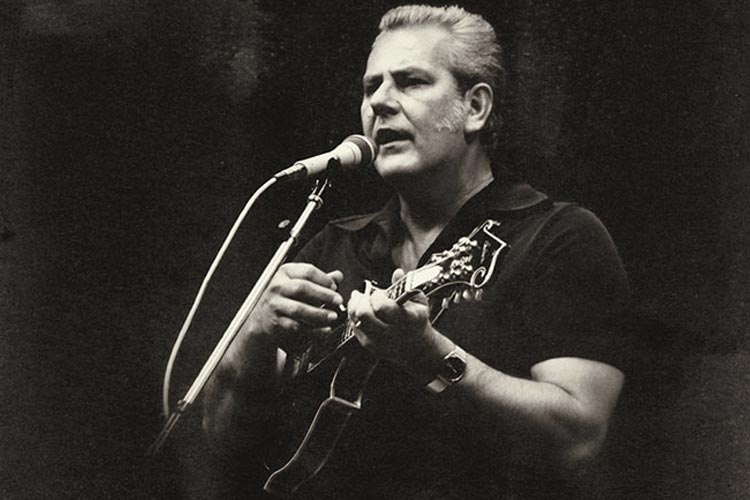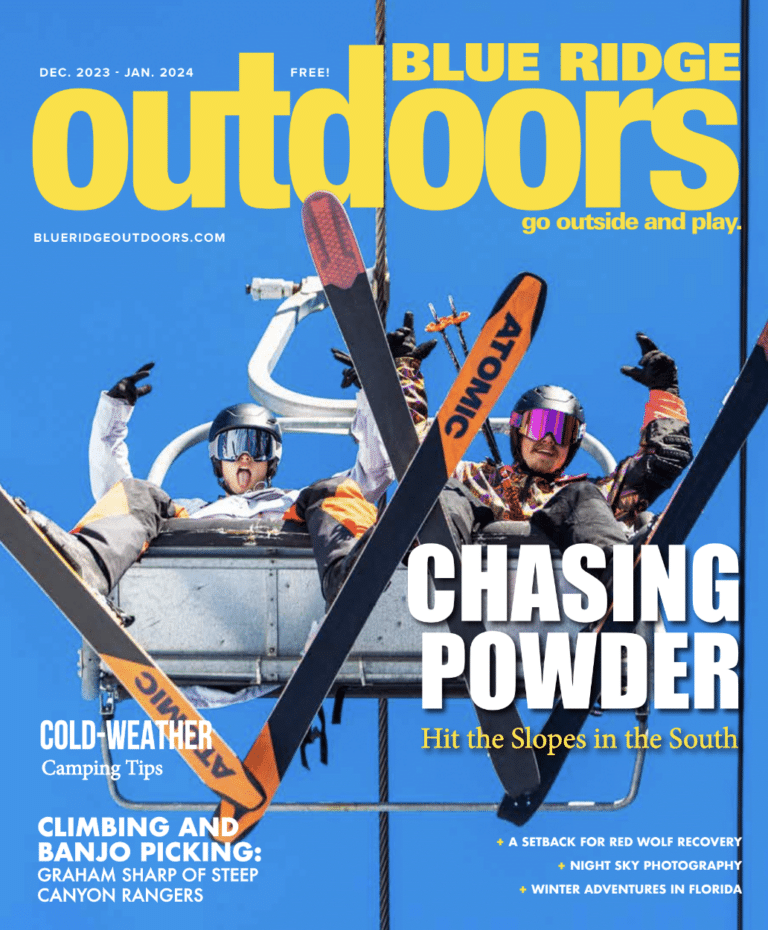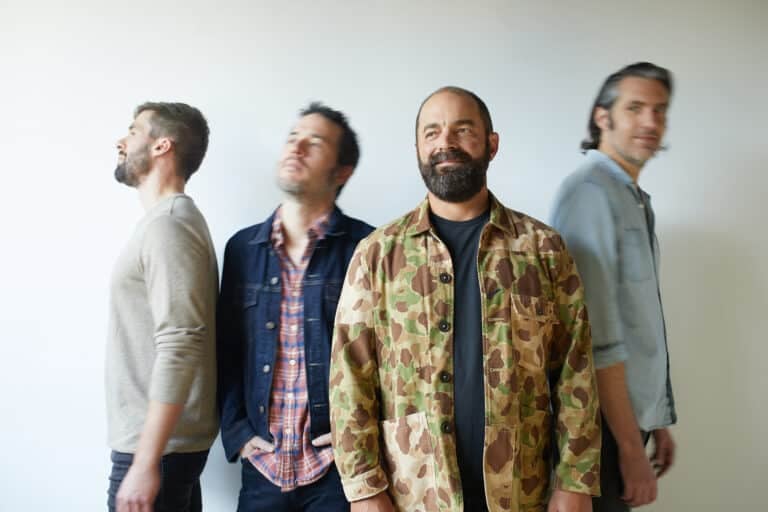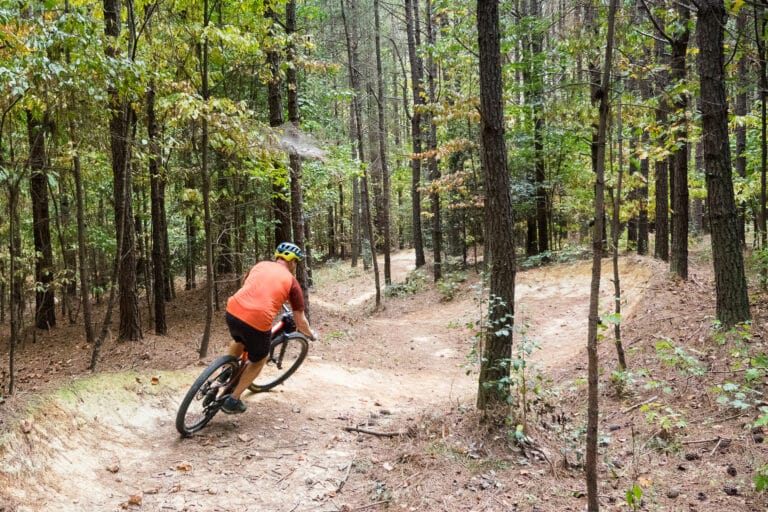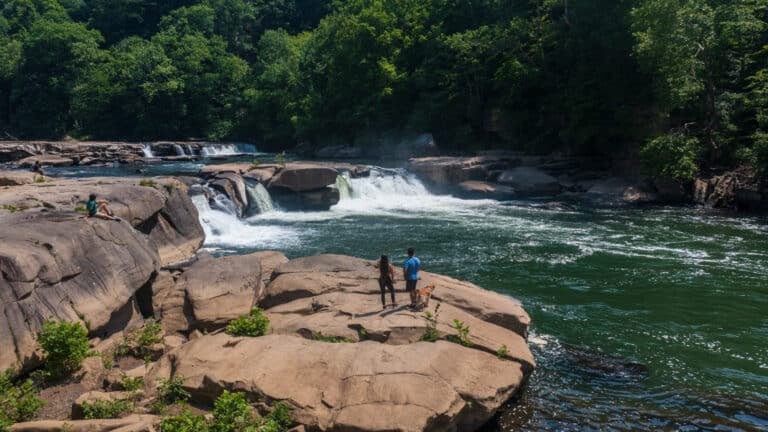The first bluegrass song I ever loved was “In The Pines,” which I discovered on a 20th-anniversary concert recording from The Seldom Scene.
I don’t think I had ever heard something so haunting as the harmonies in the chorus, driven by whoever was singing the high tenor. The sound was eerily intoxicating, and it is still cause for goosebumps at every listen. I later found out that the high tenor was John Duffey, founding member of two of bluegrass music’s most instrumental bands, The Seldom Scene and, earlier, The Country Gentlemen. Man, I was hooked. Since that early introduction, I have dug deep in The Seldom Scene’s catalog, and they rank as my favorite bluegrass band, with “Wait A Minute” ranking high at the top of of my list of the most beautiful songs ever written.
Smithsonian Folkways Recordings recently released Epilogue: A Tribute John Duffey, a seventeen song collection chronicling Duffey’s bluegrass recording career and featuring some of the genre’s heaviest hitters. Guest musicians include Sam Bush, David Grisman, Tim O’Brien, Kenny and Amanda Smith, Tony Rice, John Cowan, and some of Duffey’s mates from The Seldom Scene.
The project was fifteen years in the making, with recording sessions dating back to 2002, and was spearheaded by Akira Otsuka, whose love of Duffey’s work reaches back to his boyhood in Japan.
After listening to the record a number of times, I reached out to friends in the music world about John Duffey to gauge his impact on their love of bluegrass. The responses were universally appreciative.
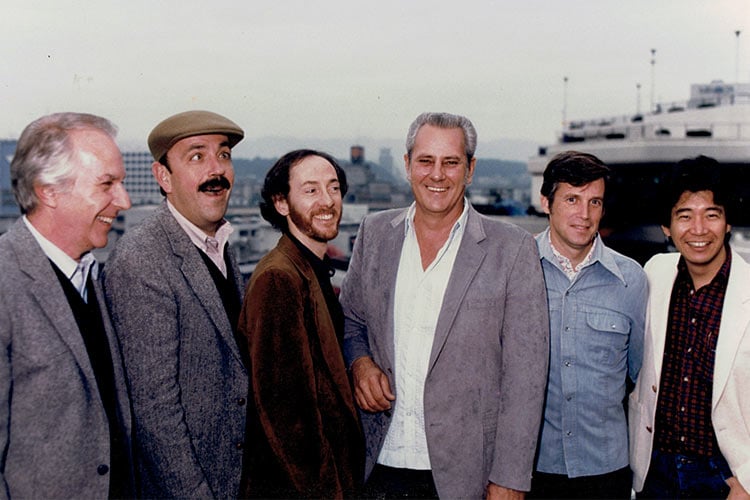
“John Duffey was a force, and a delight. He had enough love and respect for bluegrass to internalize all of the music’s traditions, yet he couldn’t help but turn all that on its ear, playing “Little Georgia Rose” in Spider Man tights and slurping whatever that godawful purple vodka drink was that he favored.”
– Peter Cooper
Senior Director of Country Music Hall of Fame
“I remember riding with my dad, as a teenager, in our old Chevrolet. It had an eight-track player and my dad had three or four bluegrass tapes in his collection. He was most proud of one by The Country Gentlemen. Listening to that tape was my introduction to John Duffey. Like most kids, I was a rock music fan, but I could hear the folk, rock, and jazz influences in their take on bluegrass. That drew in this teenager as a fan of the band. Later, when in the army, I discovered The Seldom Scene and learned that Duffey was part of the band. Hearing that first tape in a buddy’s van had me hooked. How could you not be a fan of this band? That was over forty years ago. I’ve been following bluegrass since the mid-sixties, promoting bluegrass events and working at radio stations since 1994. I like to feel that I owe my love of this music to John Duffey and the impact he had on me.”
– Larry Gorley
Festival promoter and radio host at WBCM/Radio Bristol
John Duffey’s flattop haircut and blacksmith’s forearms belied the beauty of his artistry. His glorious high tenor. His delicate mandolin runs. He seemed almost embarrassed at times to be so good at two skills that required such sensitivity, so much so that he seemed to revel in growling out his lead vocal lines or barking out high harmony parts inelegantly, shall we say, when the mood hit. As for his mandolin lines, he could start a solo as beautifully as anyone, but then it would start bouncing off the guardrails, and his car-crash cascades of notes would careen straight through the guardrails, all with a manic gleam in his eyes. But these different sides of John Duffey were all a part of who he was. John made sure that we knew he could sing and play as well as anyone. But he also took the time to remind us all that he was a master of a more rare skill. He was an entertainer. If I had a time machine, I would set it not for Imperial Rome, not for the Cavern Club in 1961, not for Paris in 1925, but for a Thursday night in 1975, at the Birchmere on Four Mile Run in Alexandria, Virginia, to watch John Duffey and The Seldom Scene do what they did so well and better than anyone.
– Eric Brace
Musician and former staff writer for the Washington Post
John had a strong tenor voice and played a unique style of mandolin. Because he was responsible for bringing regional Appalachian music to a sophisticated urban sound, he is often called the father of modern bluegrass. I started listening to him when I was learning to play mandolin in junior high school in Japan and he was my idol. My band, Bluegrass 45, was invited to tour the United States in 1971 and we met John during the tour. He was kind enough to produce one of our albums and we became good friends. One neat part of this album is that I now own John’s Gibson F-12 mandolin and many of the mandolin players used it on this album.
– Akira Otsuka
Musician and producer/director of Epilogue: A Tribute to John Duffey
I don’t have many interpersonal stories about Duffey, per se. Although I knew him from the time I was a baby until I was fourteen, when he died, I can actually only recall a handful of direct interactions that I had with him. Despite his larger than life stage persona, he was actually very shy. I don’t think John knew how to interact with kids, so he didn’t. I remember the first time that he acknowledged me directly, as a person, shortly before he died. I was sitting backstage at the old Birchmere, noodling on a guitar, when John came up, scruffed my hair, and said, “Oh, hi there, guy!” I replied, “Oh, hi, John.” That was it. That was the extent of our interaction, but it felt like a big deal to me, because I had somehow crossed the threshold into being grown up enough to where John felt he could say something – anything – to me. This is the thing that people would never have known about him. He was sweet and gentle and bashful, a sheep in lion’s clothing. Personal observations aside, the sound of his tenor singing and mandolin playing is absolutely seared in my memory. It was raw, human, and powerful. He sang with the strength of ten men. But it was also sensitive. A key part of The Seldom Scene’s alchemy was the contrast of the band’s smooth, folk infected vibe with the sheer power of Duffey’s voice. He was truly one of the all-time greats of bluegrass music.
– Chris Eldridge
Musician and son of Ben Eldridge, founding member of The Seldom Scene
For more information on Epilogue: A Tribute to John Duffey, be sure to surf over to Smithsonian Folkways website.In the meantime, take a listen to “If I Were A Carpenter,” featuring Akira Otsuka on Duffey’s Gibson F-12, on this month’s Trail Mix.
